Vegan Globetrotter is supported by our audience. When you purchase through one of our links, we may earn a small affiliate commission. As an Amazon Associate I earn from qualifying purchases. Your cost is not affected.
==================
Is induction cooking safe? Delving into the modern and innovative method of induction cooking, this article explores its safety aspects, debunking myths, understanding the science behind electromagnetic fields, and providing valuable insights for a secure and efficient cooking experience.
Is Induction Cooking Safe? Unveiling the Truth Behind the Modern Cooking Method
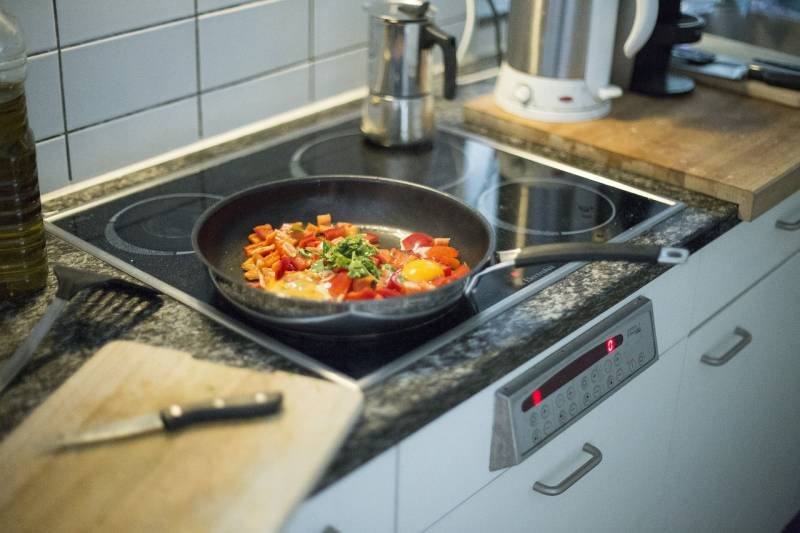
Photo by StockSnap on Pixabay
Is induction cooking safe? I wondered about this when I first heard about induction cooking. but I just wasn’t sure how safe it was.
When we needed a new stove, I noted that an induction range was quite expensive, so we chose an electric range. Honestly, gas stoves were my preference, but not possible in our kitchen at the time. But I continued researching induction stoves. They intrigued me.
Finally, I decided to try a single induction burner. While it looks like a portable cooktop, it provides a very handy cooking surface.
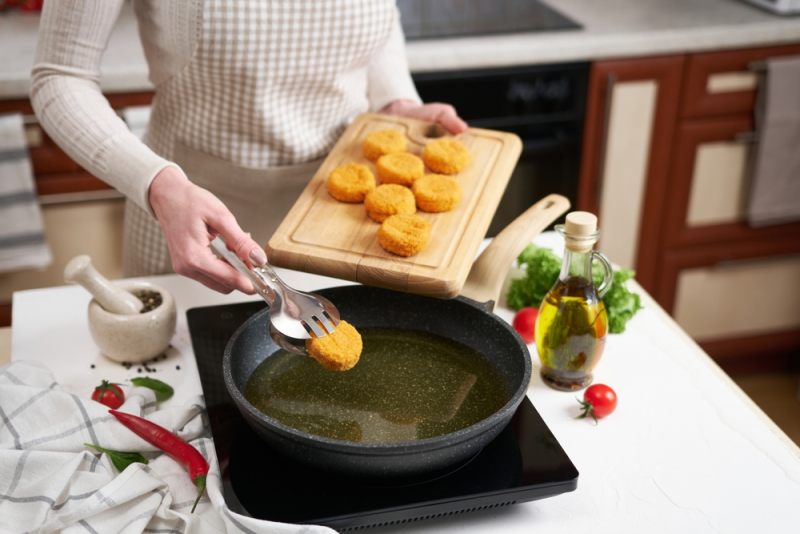
What Is an Induction Cooktop?
Induction cooking, a modern and innovative method commonly used with electric cooktops, including induction ranges, has been gaining popularity in recent years. It has become the preferred choice for many households and professional chefs due to its energy efficiency, speed, and precision. However, as with any new technology, there are concerns about safety, especially when it comes to the use of electromagnetic fields (emf radiation) and potential health risks. In this article, I will explore the science behind induction cooking, debunk common myths and misconceptions, and discuss the safety of induction cooktops.
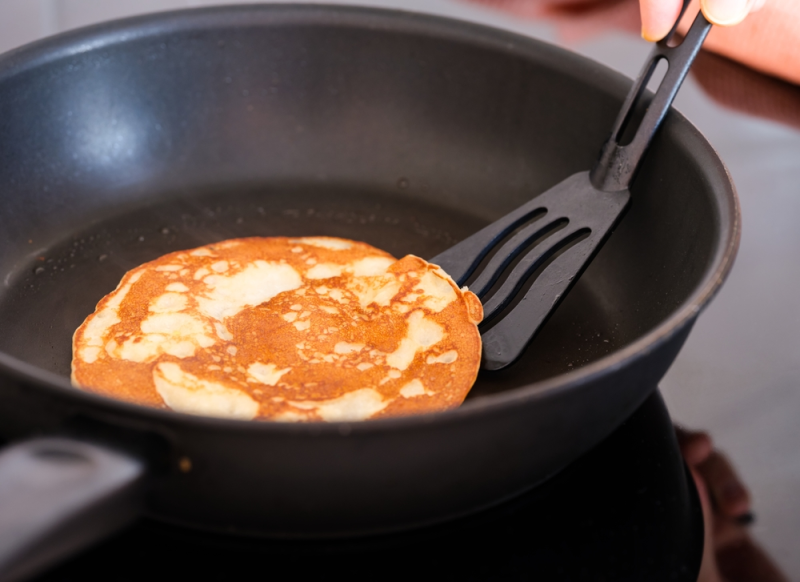
How Induction Cooking Works
Induction cooking is fundamentally different from traditional gas and electric cooktops. Instead of generating heat through an open flame or electric coil, induction cooktops use a magnetic field to create an electrical current within the cookware. This current generates heat directly within the pot or pan, making it a more efficient and precise method of cooking.
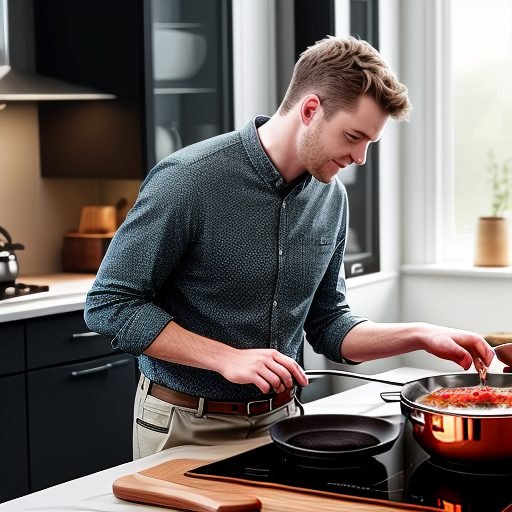
The induction cooktop, an innovative alternative to traditional gas stoves and gas cooking, contains a copper coil beneath its glass-ceramic surface. When an alternating electric current is passed through this coil, it creates a high-frequency magnetic field. This magnetic field interacts with the ferromagnetic material in the cookware, inducing a flow of electric current within the metal. The resistance of the metal to this current generates heat, which is then transferred to the food.
Induction stoves have gained popularity due to their unparalleled efficiency and precision in cooking. Unlike traditional methods, an induction stove utilizes a magnetic field to induce heat directly within the cookware, making it a faster and more controlled cooking option. The growing preference for energy-efficient and safer kitchen appliances has led many households to opt for an induction range over traditional gas or electric stoves.
Debunking Myths and Misconceptions About Induction Cooking Safety
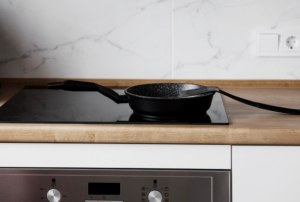
Before we delve into the safety aspects of induction cooking, let’s debunk some common myths and misconceptions surrounding induction cooktop safety that have been circulating.
Myth 1: Induction Cooktops Emit Harmful Radiation
Induction cooktops do emit low levels of electromagnetic radiation; however, these levels are within the safety limits set by international standards. Moreover, the radiation decreases rapidly with distance, so by standing a few feet away from the cooktop, you are exposed to negligible amounts. It’s essential to note that concerns about induction cooking not being good for health are not supported by scientific evidence when the cooktop is used according to safety guidelines.
Myth 2: Induction Cooking Can Cause Cancer
There is no scientific evidence to support the claim that induction cooking causes cancer. In fact, the International Agency for Research on Cancer (IARC) has classified the electromagnetic fields produced by induction cooktops as “possibly carcinogenic,” but this classification is based on limited evidence and applies to many other everyday items, such as coffee and pickled vegetables. Therefore, the question of “does induction cooker cause cancer” lacks substantial scientific backing.
Myth 3: Induction Cooktops Are Dangerous for Children and Pets
Induction stoves are actually safer than traditional cooking methods, as they have no open flame or hot surfaces. The cooktop itself remains cool to the touch, reducing the risk of burns. However, it is essential to supervise children and pets around any cooking appliance.
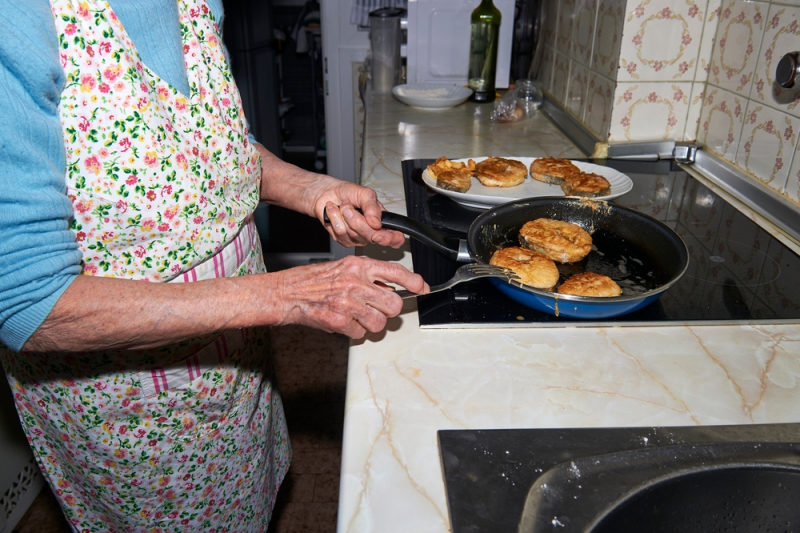
Induction stoves are often subject to myths and misconceptions regarding safety, particularly concerning concerns about electromagnetic fields and health risks. However, thorough examination and scientific evidence debunk these notions. Contrary to some beliefs, there is no substantiated evidence supporting a link between induction stoves and health issues, as acknowledged by organizations like the National Cancer Institute. Embracing the induction range over traditional gas cooking methods dispels these unfounded fears, highlighting its safety and efficiency.
Are Induction Cooktops Safe? The Science Behind Induction Cooktop Radiation
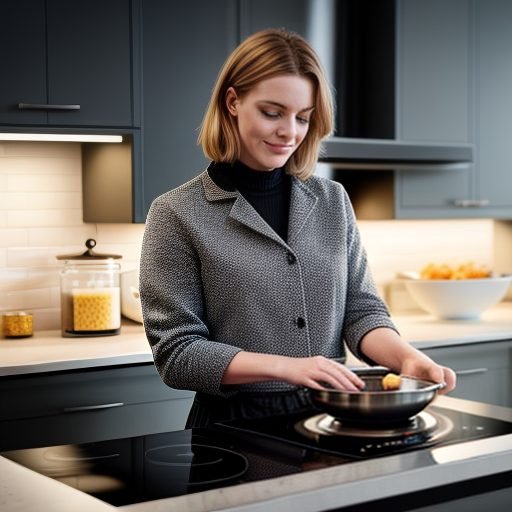
Now that we’ve debunked some myths, let’s delve deeper into the science of induction cooktop radiation. The electromagnetic fields produced by induction cooktops are classified as non-ionizing radiation, which means they don’t have enough energy to strip electrons from atoms or molecules or cause damage to the DNA within cells.
The World Health Organization (WHO) states that “exposure to low-frequency magnetic fields (such as those produced by induction cooktops) has not been conclusively linked to any adverse health effects.” Additionally, the Federal Office for Radiation Protection in Germany has confirmed that induction cooktops comply with the exposure limits set by the International Commission on Non-Ionizing Radiation Protection (ICNIRP).

Ensuring the safety of households, the induction range stands as a secure alternative to traditional gas cooking methods. Scientifically, the electromagnetic fields emitted by induction cooktops are classified as non-ionizing radiation, posing no adverse health effects according to the National Cancer Institute. The fact that the cooking surface remains cool to the touch enhances safety, eliminating concerns about burns associated with conventional stoves. Embracing the induction range not only offers efficient cooking but also debunks fears surrounding potential health risks.
Induction Cooktops and Pacemakers: What You Need to Know
One of the main concerns regarding induction cooktop safety is the potential interference with pacemakers. Pacemakers are medical devices that use electrical impulses to regulate the heartbeat, and they can be sensitive to electromagnetic fields.
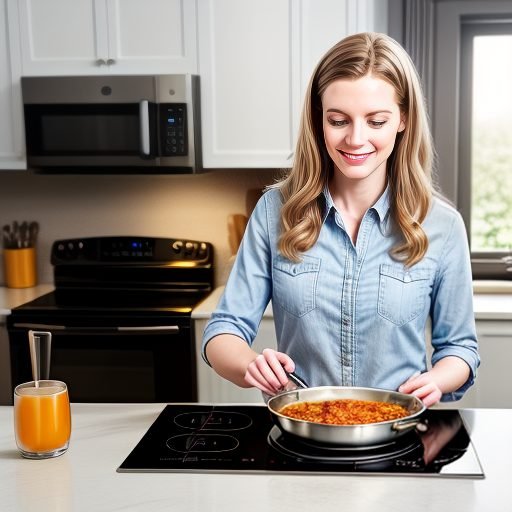
Most modern pacemakers are designed to be resistant to electromagnetic interference, but some older models may still be affected. If you have a pacemaker or any other implanted medical device, it is crucial to consult your doctor and follow their recommendations. Generally, maintaining a distance of at least 2 feet (60 cm) between the cooktop and the pacemaker should minimize any potential interference.

Is Induction Cooking Safe for Health and During Pregnancy?
Induction cooking is considered safe for both general health and during pregnancy. The American College of Obstetricians and Gynecologists (ACOG) states that there is no evidence to suggest that exposure to low-level electromagnetic fields, such as those produced by induction cooktops, is hazardous during pregnancy.
However, it is always recommended that pregnant women take precautions around any electrical appliances, such as standing a reasonable distance away from the cooktop while in use, to minimize any potential risks.
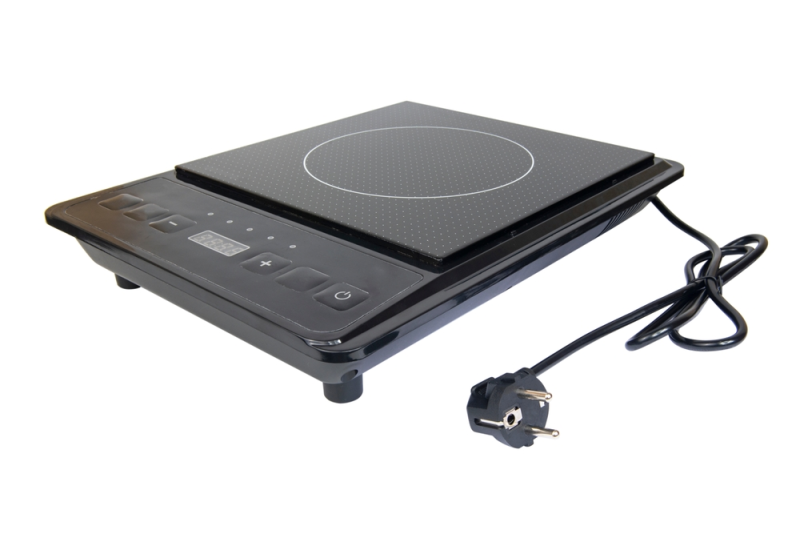
Comparing Induction Cooking to Other Cooking Methods
When comparing induction cooking to other methods like gas and electric, it’s essential to consider various factors such as efficiency, safety, and environmental impact.
In terms of efficiency, induction cooktops take the lead as they directly heat the cookware, resulting in less energy loss. This also means faster and more precise temperature control.
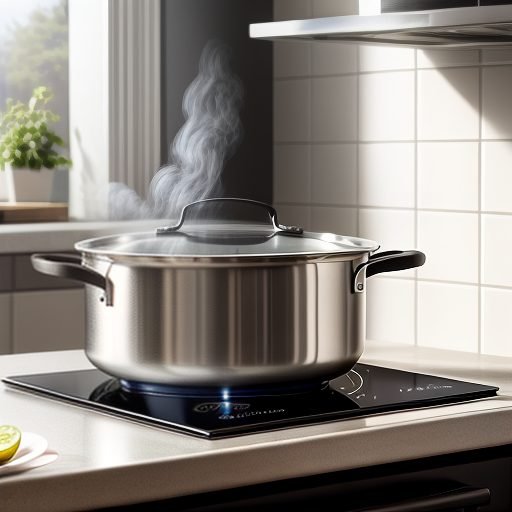
Safety-wise, induction cooktops have several advantages over gas and electric stoves. There is no open flame, reducing the risk of burns and fires, and the cooktop surface remains cool to the touch. Additionally, there is no risk of carbon monoxide poisoning, which can occur with gas stoves if not properly ventilated.
From an environmental standpoint, induction cooktops are more eco-friendly. They use electricity, which can be generated from renewable sources like solar or wind power. Gas stoves rely on fossil fuels, which contribute to greenhouse gas emissions and climate change.
In fact, with the safety factors, combined with efficiency, low cost, and low impact on our environment, induction cooktops might provide the best choice for our future. (PBS article)
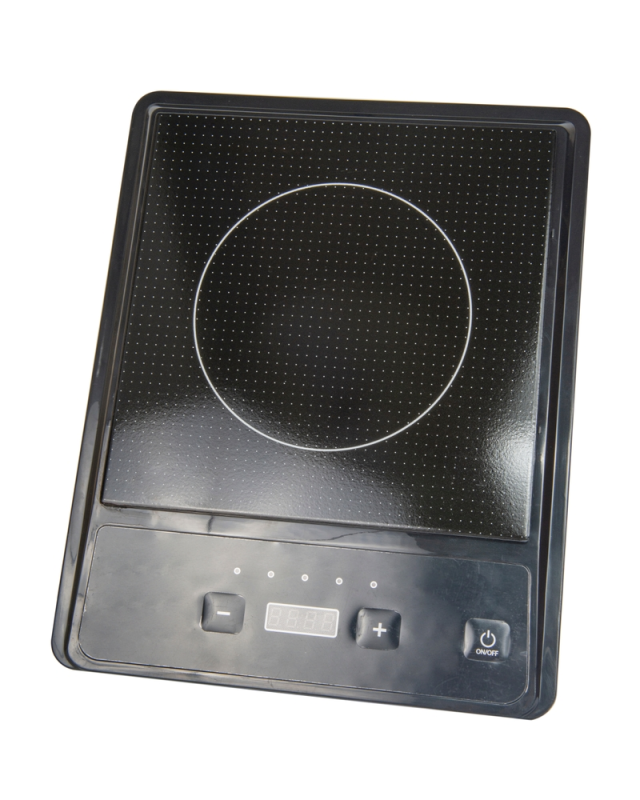
Tips for Safely Using Induction Cooktops
To ensure the safe use of induction cooktops, follow these simple tips:
- Always use compatible cookware made from ferromagnetic materials like cast iron, stainless steel, or magnetic stainless steel. In fact, non-magnetic cookware just won’t work with your induction stove.
- Keep a distance of at least 2 feet (60 cm) between the cooktop and any electronic devices or implanted medical devices. Of course, keeping out of the cooking zone is not possible if you are the one cooking. Consider this when deciding on whether to add and induction cooktop to your home.
- Clean the cooktop regularly according to the manufacturer’s instructions to avoid the buildup of grease and debris. As with any kitchen appliance, keeping the induction cooktop clean ensures it continues to work well. We just wipe it clean after each use. That makes for easy cleanup.
- Supervise children and pets around the cooktop and teach them about the potential induction cooking health hazards. The induction cooktops work without actual heat. But the pot or pan heats the contents, often to a very hot temperature, if you choose. That means that the food inside your pan gets hot and might burn if touched. As with any cooking zone, keep your children and pets safe.
- Do not use damaged cookware, as it may not heat evenly or may cause the cooktop to malfunction. Some pans might be warped on the bottom surface. This prevents the induction cooktop from connecting properly with the pan surface. Make sure your pots and pans have a flat bottom surface. Also, keep the bottom surface clean to ensure it connects well with your induction cooktop.
Choosing the Right Induction Cookware for Safety and Efficiency
To get the most out of your induction cooktop, it’s essential to choose the right cookware. The ideal induction cookware should have the following characteristics:
Made From Ferromagnetic Materials:
Induction cooktops require cookware made from magnetic materials like cast iron, stainless steel, or magnetic stainless steel to function correctly.
Flat-Bottomed:
Flat-bottomed cookware ensures even heat distribution and improves cooking efficiency.
Heavy-Duty and Durable:
High-quality, heavy-duty cookware can withstand high temperatures and resist warping or damage.
Compatible With Other Cooktops:
If you have multiple cooking surfaces in your kitchen, consider choosing cookware that works with all of them for maximum versatility.
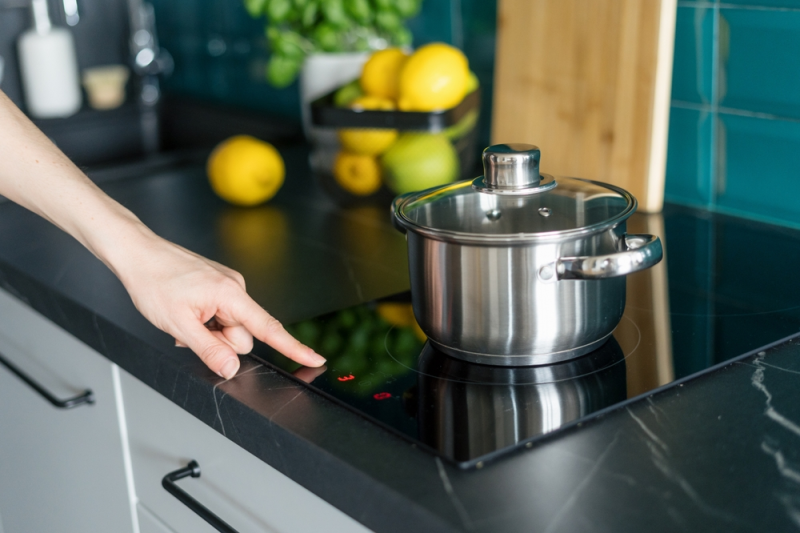
The Truth About Induction Cooking Safety
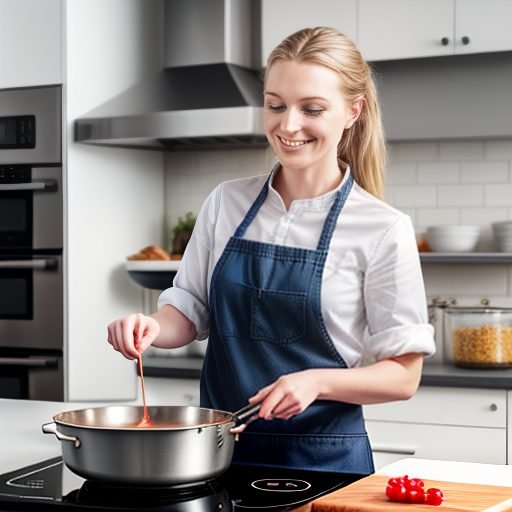
The bottom line is that induction cooking is safe when used correctly and with appropriate precautions. The magnetic field does not harm the human body.
In fact, Induction cooktops offer numerous benefits, such as energy efficiency, precise temperature control, and reduced risk of burns and fires. The induction cooktop stays cool to the touch, making it safer than other types.
By understanding the science behind induction cooking and debunking common myths, we can confidently embrace this modern cooking method and enjoy its many advantages.
So, is induction cooking safe? Yes, it is. And with the proper knowledge, care, and use of suitable cookware, you can enjoy a safe, efficient, and enjoyable cooking experience with induction technology.
Frequently Asked Questions
Is there any scientific evidence supporting the safety of induction cooking, particularly regarding electromagnetic fields (EMF) exposure?
Yes, there is scientific evidence supporting the safety of induction cooking. Induction cooktops emit low levels of electromagnetic radiation within safety limits set by international standards. The World Health Organization states that exposure to low-frequency magnetic fields produced by induction cooktops has not been conclusively linked to any adverse health effects.
Can induction cooking cause cancer, as some myths suggest?
No, there is no scientific evidence to support the claim that induction cooking causes cancer. The International Agency for Research on Cancer (IARC) has classified the electromagnetic fields produced by induction cooktops as “possibly carcinogenic,” but this classification is based on limited evidence and applies to many other everyday items, such as coffee and pickled vegetables.
How do induction cooktops compare to other cooking methods in terms of safety and environmental impact?
Induction cooktops are considered safer than traditional gas and electric stoves. They have no open flame, reducing the risk of burns and fires, and the cooktop surface remains cool to the touch. Additionally, induction cooktops are more eco-friendly, using electricity, which can be generated from renewable sources like solar or wind power, while gas stoves rely on fossil fuels contributing to greenhouse gas emissions.
Explore Vegan Culinary Delights with Us!
Connect with a vibrant vegan cooking community! Find engaging content, product reviews, and more on our social media accounts.
Facebook: VeganGlobetrotter
Instagram: @veganglobetrotter
Pinterest: TheVeganGlobetrotter
Twitter: VeganGlobetrot
Join us on a journey of delicious plant-based cuisine and discover essential vegan cooking tools! #VeganCooking #PlantBased



Don't miss out
when new recipes and information are added!
Join our newsletter for free recipes,
healthy living inspiration, and special offers
You have Successfully Subscribed!